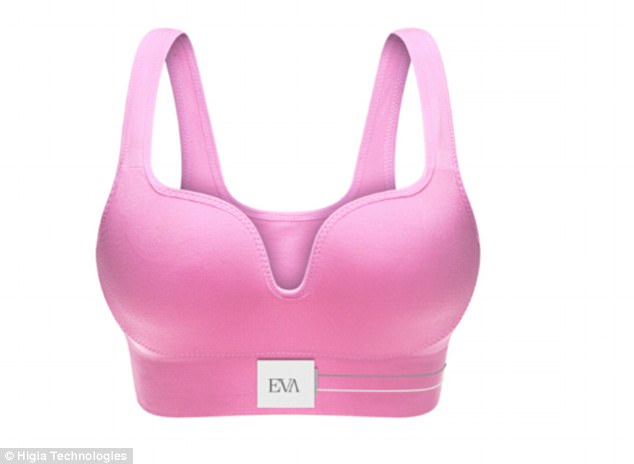A Mexican teenager has invented a bra that could provide an early warning for women developing breast cancer.
The technology uses biosensors to measure temperature and alert the wearer to any worrying changes.
The young entrepreneur created the bra after his mum nearly died of cancer when he was 13 years old – and now it could potentially save the lives of millions.
Julian Rios Cantu, 18, and his three friends, developed the Eva bra which is equipped with 200 biosensors that monitor the temperature, shape and weight of a woman’s breasts.
Information is logged in an app which will let women know if there are worrying changes.
Women would need to wear the Eva bra for just 60 – 90 minutes a week.
Their company, Higia Technologies, won the Global Student Entrepreneur Awards (GSEA) in Frankfurt, Germany on April 27-29.
The ‘auto exploration bra’ is only at the prototype stage.
Thanks to the GSEA competition they now have now won $20,000 (£15,500) to develop it further, writes BBC.
The company says it is ‘devoted to boosting women’s quality of life by attaining a professionalisation of the self exploration method for the early and effective detection of breast cancer’.
In June last year, Mr Rios Cantu tweeted ‘In my hands you see the first prototype of the Higia Technologies auto-exploration bra’.

After this recent success the president of Mexico tweeted to congratulate him.
Five years ago Mr Rios Cantu’s mum was initially told her lumps were not malignant but found out six months later they were cancerous.
She had to have both breasts removed which inspired Mr Rios Cantu to find a device which could detect cancer earlier.
Around 8,200,000 people die of breast cancer globally each year.

Tumours change the temperature of skin as a result of increased blood flow but increased blood flow does not necessarily mean the wearer will develop cancer.
‘At present, there is no evidence to show whether this bra is a reliable way to detect tumours, and it’s certainly not a good idea for women to use technology that hasn’t been tested in good-quality scientific trials’, Anna Perman from Cancer Research UK told BBC.
‘It’s great to see young people like Julian getting into science and having ideas that could help with cancer diagnosis’, she said.

Daily Mail
This page has been viewed 750 times


























